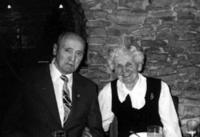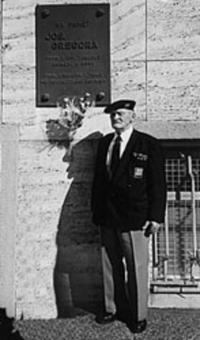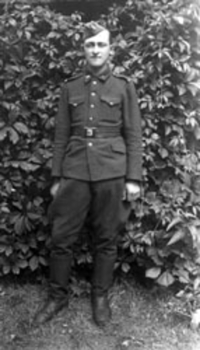“We were starving and we smoked in order to appease the hunger.”

Download image
Mr. Miroslav Stárek was born on April 4th, 1920 in the village of Huleč in Volhynia. He set out to be an engineer. He left his hometown in 1944 when he entered the Czechoslovak Army. He served with the technical support tank brigade. With his troop, he underwent the journey through the towns: Kamenec Podolský - Černovice - Dukla - Velký Šariš + Malý Šariš - Levoča and Moravian Ostrava. After the war, he stayed in Czechoslovakia because he was afraid of a possible return to the USSR. He tried to get his parents to re-emigrate for one and a half years. He was demobilized in 1945 and then settled down in the village of Zderaz in the Rakovník region. Later on, he and his family moved to the Mělník region. He wasn’t happy working on the farm, so he found himself a job in Mělník power station. Today he lives in Brozánky near Mělník.


